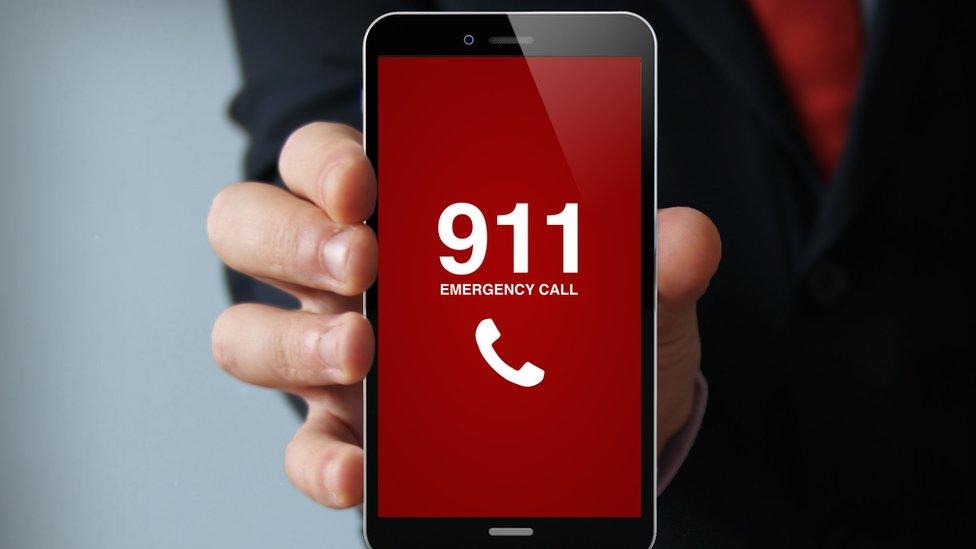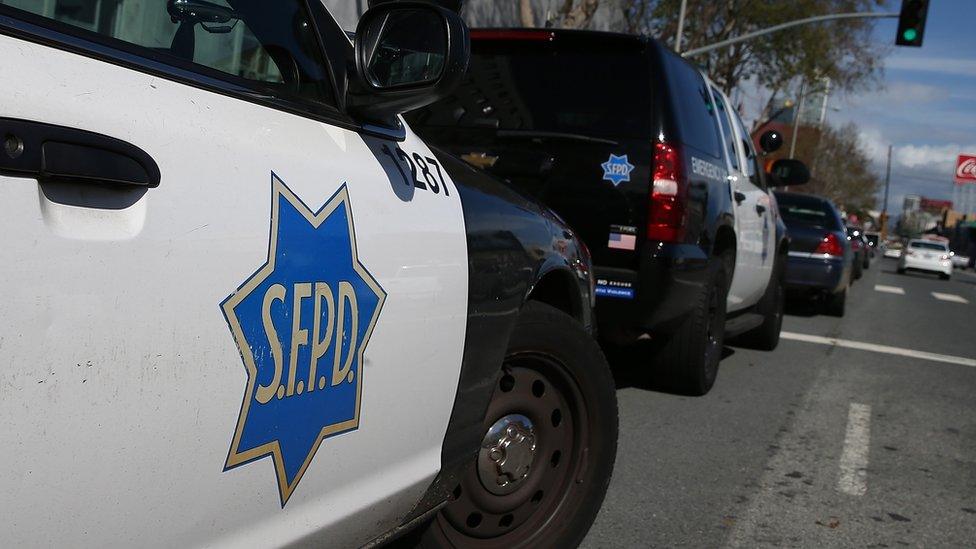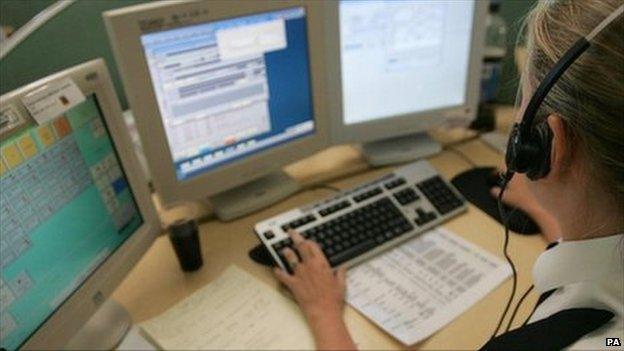'Butt dials' - a strain on US emergency systems
- Published
- comments

Research shows about 30% of mobile 911 calls in San Francisco were accidental "butt-dials"
When San Francisco's Department of Emergency Management noticed a surge in 911 calls, it was desperate to know why.
Had the city experienced a surge in crime? Violence? Fear? Or was there some other trend at play causing call volumes to increase by 28% between 2011 and 2014?
It was important to understand what was going on, because while calls were increasing, staffing levels were staying flat, and the system was struggling under the pressure.
Workers in the San Francisco 911 centre were being encouraged to do overtime. At particularly busy periods, they were forced to.
To help, the mayor's office made use of a Google initiative where the company freed up the time of its engineers and developers to take up projects for social good.
In a report just published, external, the research team reveals that the issue of butt-dialling - that is, accidentally making calls on your mobile phone - is a major frustration and strain on the 911 call handlers.
In one sample session - when the researchers sat by the call handlers and noted down what was happening - they found 30% of calls coming in from mobiles were accidental butt-dials, also known as pocket-dials.
As well as being time-consuming taking the call, the impact of butt-dials doesn't stop there.
Each one requires further attention - after all, the 911 handler doesn't know if it was a mistake, or someone trying to call for help but unable to talk at that point.
And so, all butt-dials are followed up. In the sample period, it took an average of one minute and 14 seconds to get back to people and determine the call was a mistake.
In a survey of handlers at the San Francisco 911 centre, 80% said chasing these calls back was a time-consuming part of their already overstretched day.
About 39% said it was the single biggest "pain point" they had in the job.
Preventative measures
All mobile phones are required to have the ability to make an emergency call without having to unlock it - a common-sense measure, particularly given that the spread of mobile phones has hastened the demise of public phoneboxes the world over.
But as with so many simple solutions, there is an unintended and complex side effect. The rule is that if a phone has enough battery to be turned on, it must be able to make an emergency call.
This includes when a phone has been cut off for not paying the bills, but when a phone is not tied to a network, the location and identity of the caller is very hard to trace - a motivating factor, US regulators say, for hoax callers.
Idiocy and malice are difficult problems to solve. Butt-dials, on the face of it, should be simpler.

This latest research deals solely with San Francisco, but we know, through the limited (and I mean limited) data on the issue, that it is a problem further afield.
The US Federal Communications Commission (FCC) estimated that its research into the issue in New York City put the number of butt-dials coming to 50% of all incoming calls from mobile phones.
"If my anecdotal experiences are remotely accurate," FCC Commissioner Michael O'Reilly wrote, "it would mean that approximately 84 million 911 calls a year are pocket-dials.
"This is a huge waste of resources, raises the cost of providing 911 services, depletes morale, and increases the risk that legitimate 911 calls - and first responders - will be delayed."
In the UK, growing concern over silent calls - not just from mobiles - led to the adoption of Silent Solutions, a system that sought to filter out silent calls by prompting the caller to press "55" if they were there.
Police have credited this technology with greatly reducing the number of calls coming in.
But the system came under scrutiny after the kidnap, rape and murder of 17-year-old Hannah Foster in 2003.
A court in 2008 heard that Hannah had called 999 but the call was judged to be an accidental call and cut off., external
Data stresses
The Google team discussed the research at the Code for America summit, a gathering of public sector officials and workers to discuss ways in which software development and the use of technology could be used to help services Americans use every day.
Just as Uber can disrupt the taxi industry, and Airbnb can disrupt the hotel business, it is the hope that government services can be similarly shaken up, because it could save serious amounts of money.
But at the event there was one consistent theme - a lack of good data available about US government services.
The best businesses collect data obsessively in order to make informed decisions about the future of their work, but it seems in the US public sector such data can be lacking.
It's incomplete, inaccurate and in silos, making it hard to draw meaningful conclusions.
For the 911 call report, the Google engineers found this to be a huge problem. Butt-dials, for instance, were either not registered at all - the call handler had better things to do - or they were classified in a grouping that contained lots of other scenarios beyond accidental calls.
It meant the researchers had to resort to basic techniques - sitting next to call handlers - rather than being able to take a truly comprehensive and conclusive amount of data.
It means the sample size for this particular study is tiny. But it's a start.
"In order to make good decisions, you need information, and this is an important step," the team said.

Follow Dave Lee on Twitter @DaveLeeBBC
- Published17 June 2015

- Published8 July 2015
